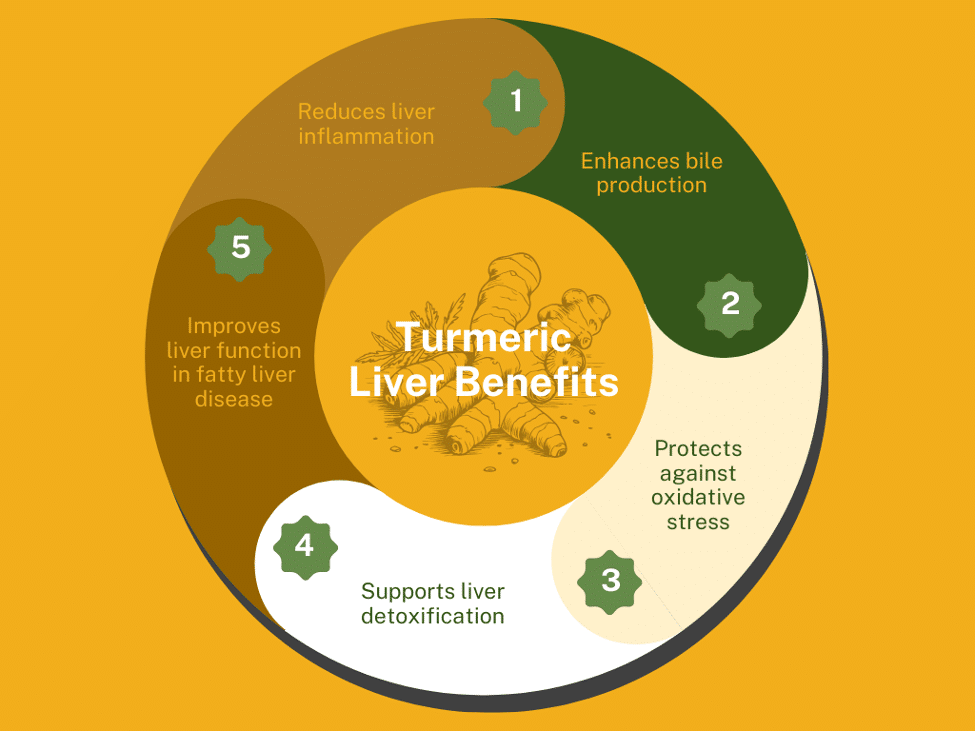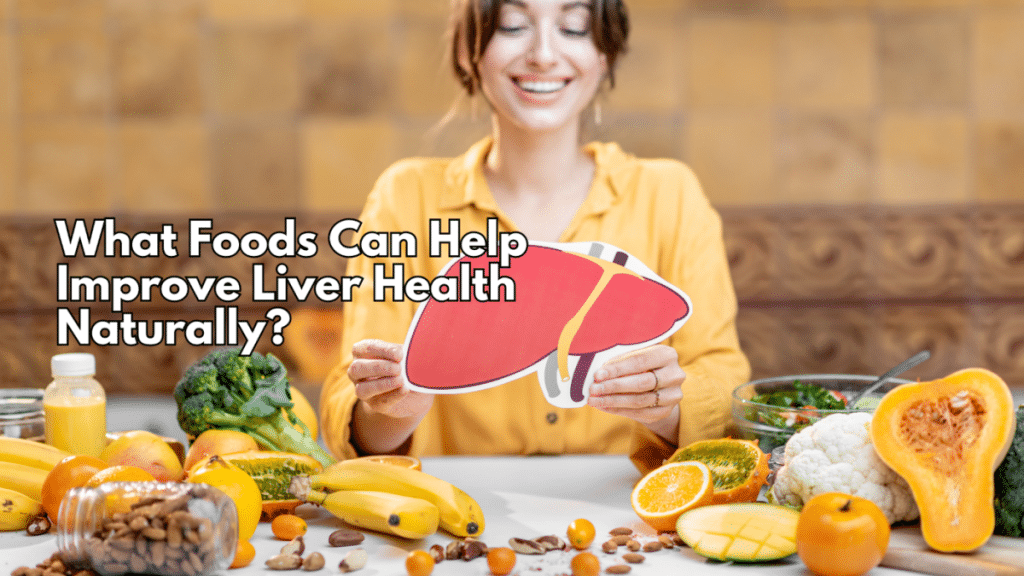Liver health is often overlooked in discussions about overall wellness. The liver is an intrinsic organ of the human body necessary to perform various critical functions, including detoxification, protein synthesis, and the production of biochemicals that are involved in digestion. Unfortunately, many people only think about liver health when something goes wrong in their body.
But again, one major key to living healthy and long is taking good care of the liver. One important way of taking good care of the liver is through nutrition. Certain foods have been shown to improve liver function and protect against liver diseases. This article presents some of the best foods that can be consumed as part of your diet to give nature the needed boost to bring about healthy liver function.
Liver Health Solutions
Keeping the liver in good health does not take rocket science. It is one sure way of boosting the liver to eat foods that are known to contain properties friendly to the liver. However, if all the necessary nutrients cannot be ingested through food, supplements are helpful.
Specific pure health liver health formula is designed to support liver function by providing essential nutrients that the liver needs to perform its many tasks efficiently. Though such supplements have great benefits, it is also essential to focus on the daily diet consumed. Here are some recommended foods for liver health that you should consider incorporating into your diet.
Leafy Greens
Superfoods include leafy greens, such as spinach, kale, and arugula, which improve liver health. They contain chlorophyll, the detoxifying compound that neutralizes heavy metals, chemicals, and pesticides in the liver.
The anti-inflammatory properties of chlorophyll reduce the chances of inflammation and, therefore, liver injuries. Together with chlorophyll, there is enough fiber in leafy greens that facilitates digestion and reduces the burden put on the liver.
It is very easy to incorporate leafy greens into your diet. You can add them to salads, or smoothies, or sauté them as a side dish. Try to incorporate different types of leafy greens into your diet to get a wide range of the various nutrients that support liver health.
Cruciferous Vegetables
Cruciferous vegetables such as broccoli, cauliflower, and Brussels sprouts are rich in nutrients that support the functions of the liver. Glucosinolates contained in such vegetables stimulate the liver to make detoxification enzymes.
These enzymes help in the breakdown of toxins and carcinogens and render them from a bound state to one more easily excreted by the body. Cruciferous vegetables also contain very high levels of fiber and antioxidants, both of which play a large role in liver health.
Eat at least one meal each day that has cruciferous vegetables. Steam, roast, or stir-fry them and then throw them into soups and stews. Consuming vegetables can generally improve liver function quite a bit, reducing liver disease.
Garlic
Garlic boosts liver health through several mechanisms. The sulfur compounds present in garlic accelerate the activity of the liver enzymes involved in the removal of toxins in the body.
Garlic also contains selenium, a mineral that increases antioxidant activity in the liver, thereby shielding the liver from damage. On top of these, garlic lowers cholesterol levels, contributing to the enhancement of cardiovascular health and, therefore, the integrity of the liver.
It’s easy to add garlic to your diet: You’ll find it in many foods, including soups and sauces, and marinades and stir-fries. You’ll get the most benefits from garlic by eating it raw or lightly cooked to preserve its active ingredients.
Beets
Other liver-friendly foods you need to be eating are beets. High in antioxidants, beets are filled with betalains that lower inflammation and oxidative stress in the liver. Beets have nitrates that are known to improve blood flow and enhance liver detoxification. They also contain fiber, which supports digestion and assists the liver in excreting those toxins that have been released in the bile.
Beets can be prepared in numerous ways, such as roasting, juicing, or grating them into salads. When beets are consumed as juice, the power of intensifying liver health is immense, because the delivery of nutrients that are captured would go straight to the liver—nothing more, nothing less.
Turmeric
Turmeric is one of the most powerful anti-inflammatory spices, having been used long in the traditional realm for the support of the liver. Curcumin, its major constituent, stops inflammation and oxidative stress in the liver. It additionally boosts bile production, which is important for digestion and toxin elimination. In addition, turmeric increases resident liver function in individuals with Nonalcoholic fatty liver disease (NAFLD).
You can add this spice to curries, soups, or smoothies. You can also eat turmeric as a supplement, but you should be aware that only high-value curcumin is well absorbed when ingested with black pepper or piperine.

Walnuts
Walnuts are rich sources of omega-3 fatty acids that possess anti-inflammation properties and have a supportive role in maintaining healthy livers. They also possess the gift of containing an amino acid, arginine, which aids in the detoxification of ammonia by the liver. Walnuts are also ultra-rich in antioxidants, preventing oxidative stress from affecting the liver.
You could have it as a snack, top your salad with it, or bake with it. Having one handful of walnuts each day can go a long way for your liver and health in general.
Citrus Fruits
Most importantly, it has been said that citrus fruits such as lemons, oranges, and grapefruits are good sources of vitamin C. Vitamin C acts as a great antioxidant that supports the liver in its performance.
Once the free radical is neutralized with vitamin C, it diminishes oxidation under stress in the liver. They also contain a range of fiber for digestion, aiding in the removal of waste products by the liver. Grapefruit seems to turn on the liver enzymes needed for the most basic functions of detoxification.
Drinking a glass of warm water with lemon at the beginning of your day can help spur liver activity and elimination. Citrus fruits may also be added to salads, and smoothies, or may be eaten as a healthy snack.
Avocados
Avocados are among the nutrient-dense foods that are beneficial to liver health, and their benefits go beyond count. They contain healthy fats that reduce inflammation and help the liver to function well in the processing and elimination of toxins.
In addition, avocados are full of glutathione, an antioxidant immense enough to protect the liver from any damage. In addition, avocados are rich in fiber, which promotes digestion in the body, thus reducing the workload of the liver.
Avocado will come in a salad, sandwich, or smoothie. Even to this point adding avocado to your diet will supply the liver with good and vital nutrients that the liver requires to stay healthy.
Green Tea
Green tea is among one of the most consumed beverages globally, with positive health benefits in the support of liver function. Green tea’s richness in catechin is classified as an antioxidant. They work by neutralizing inflammation and oxidative stress across liver cells. Green tea has also been used to lower enzyme levels and consequently reduce liver disease.
Drink at least two to three cups a day to harness the benefits of drinking green tea. Green tea likewise can be used as the base of smoothies, or a cooking ingredient.
Olive Oil
Among the healthy fats, olive oil has been shown to support the liver through anti-inflammatory processes, enhancing its detoxifying capability. It contains a high amount of monounsaturated fats that have been shown to reduce oxidative stress while raising enzyme levels in the liver. Olive oil also contains polyphenols, which possess antioxidant and anti-inflammatory characteristics.
That can be topping salads, and veggies, or cooking with olive oil. In the latter instance consume extra virgin olive oil as it is the least processed and, therefore, has the highest nutrient content.
Berries
In addition to this, berries are rich in antioxidants that protect the liver from damage. Amongst antioxidants, one can find the variety named anthocyanins, which give blueberries, strawberries, and raspberries their color.
Anthocyanins have been found to decrease inflammation and oxidative stress in the liver. Second, berries contain considerable amounts of fiber that support digestion and the capacity of the liver detox process.
They can be eaten as they are, mixed into smoothies, or cooked into pastries. Again, the more, the merrier, with allowances in berries for your liver’s nutrient needs.
Apples
Apples are a source of pectin, a soluble dietary fiber that plays a role in binding toxins in the alimentary canal and facilitating their elimination through the activity of the liver. Apples also maintain the health of the liver because of their antioxidant levels, guarding the liver against oxidative stress and damage.
It is advisable to eat at least one apple a day, with pure benefits to the liver. The apple can be eaten as a snack, in your salad, or in your baking.
FAQs
Can an individual improve the health of the liver only through diet?
Dietary management greatly benefits liver health but should be combined with other healthy lifestyle practices, such as regular exercise, proper hydration, and avoiding excessive alcohol intake.
How long before one could view improvement in the liver through diet?
Improvement in the liver will vary from individual to individual, and also in the general lifestyle of the individual. Some may take a few weeks, and others will be farther down the road because of the level of compliance.
Are supplements really necessary to keep the liver healthy?
Supplements do help especially when one isn’t getting the nutrients to support their liver from dieting. Still, it is advisable to consult a health expert before the administration of any dietary supplement.
Conclusion
Care for your liver is inestimable for the health and life of a human being. That means leafy greens, cruciferous vegetables, garlic, beets, and so much more.
Eating this liver-loving food will help the various detoxification processes your liver performs, lower inflammation, and provide a protective barrier that will guard against liver damage. Supplements can be a helpful addition to your diet, but the cornerstone of liver health is the food you eat daily. Natural nutrition foods tend to keep your liver healthy for long and to live longer in life.
